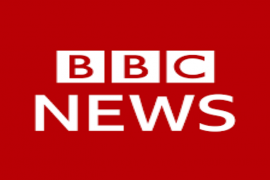Among the November 1st coverage of Israel’s general election on BBC World Service radio, an item aired on the afternoon edition of ‘Newshour’ stood out in particular.
That item (from 14:05 here) began with commentary from the BBC Jerusalem bureau’s Tom Bateman who – with four hours of voting still to come – did not have much to report at that point. However, presenter Julian Worricker continued with an all too predictable ‘take’ on the topic of Israelis voting for their next government (from 18:19). [emphasis in italics in the original, emphasis in bold added]
Worricker: “Well as Israelis vote, the wider world may see the outcome of the election in the context of the Israeli-Palestinian conflict.”
As we all too often have cause to note on these pages, BBC editorial guidelines on impartiality include a regularly ignored section titled ‘Contributors’ Affiliations’:
“4.3.12 We should not automatically assume that contributors from other organisations (such as academics, journalists, researchers and representatives of charities and think-tanks) are unbiased. Appropriate information about their affiliations, funding and particular viewpoints should be made available to the audience, when relevant to the context.”
Worricker however made no effort whatsoever to advise his listeners around the world of the obviously relevant “affiliations, funding and particular viewpoints” (including UK foreign office funding) of his next contributor’s organisation:
Worricker: “There’s a reminder of that and the absence of any political or diplomatic progress in resolving it from Jan Egeland, the secretary general of the Norwegian Refugee Council. He’s been visiting the Israeli occupied West Bank to assess the situation there, as he has done many times before. How does his current visit compare with those of the past?”
Egeland: “Well it’s in a way bleaker every time I come and I’ve been travelling here now for 45 years. The occupation has now lasted 55 years. The siege on Gaza for 15 years.”
Worricker failed to provide any context to explain why “the occupation” came about or to clarify that the Gaza Strip is not under siege.
Egeland: “The hopelessness among Palestinian youth that we are serving; no hope for a better future. Every single day couldn’t be worse. Let me give you one example of – extremely a symbolic example – of what we are facing here. One of the winners of today’s elections in Israel is likely to be Itamar Ben Gvir. He leads the Right-wing extremist party called Zionist…Religious Zionism. He has put his parliamentary office – believe it or not – in the backyard of a Palestinian family. The head of the family is 70-year-old Fatima. I was with her today. I saw that provocation in her house. This politician is brandishing guns in front of Fatima. He’s bringing…he’s bringing people, you know, thugs, settler youth from the illegal settlements to that neighbourhood where they beat up civilians, the elderly. Fatima had her hand cut. When her sons tried to attend her, they were arrested whereas the thugs were not. This is the example of what’s happening in the occupied West Bank.”
Ben Gvir is in fact number two on the Religious Zionism party slate which is made up of three parties.
Worricker failed to clarify that the “symbolic example” used by Egeland is not from “the occupied West Bank” but the Sheikh Jarrah/Shimon Hatzadik neighbourhood of Jerusalem. He provided no context regarding the violence in that neighbourhood also perpetrated by Arabs and listeners were not told that the incident in which Fatima Salem’s hand was injured took place in February or that – as the BBC knows – she does not own the property in which she resides.
Whatever one’s opinion of Itamar Ben Gvir and his “parliamentary office” (actually a gazebo and a table) in that volatile neighbourhood, it is clear that BBC audiences were presented with an entirely one-sided account of that story. Failing to challenge his interviewee’s version of events at all, Worricker continued:
Worricker: “On the issue of humanitarian help for people, there has been EU funding for Palestinian communities. Has that made any significant difference for people?”
Egeland: “Well I mean the humanitarian help that Europeans and the UK is giving is of course helping people to survive, to get through from day to day but it is of course not able to do anything with the constant humiliation and the occupation and the lack of human…human rights. And again, 228 funded structures – homes, waterworks, schools etc – have been torn down by the occupying power Israel so far this year. So we build with tax money from Europeans, Israeli soldiers tear down.”
Worricker made no effort to inform listeners that such European funded structures have been constructed illegally for years.
Worricker: “The international community regularly condemns the current situation but little seems to change on the ground. What do you say would make a difference?”
Egeland: “A united front between the United States – which is the most influential party both on the Israelis and Palestinians – a united front with the Europeans and the Gulf countries that have normalised now with Israel. They should convince Israel that it is in Israel’s interest to live in peace and reconciliation with their neighbours and that occupation is wrong when Israel does it, as with any other power on earth, and if they continue to occupy and humiliate their neighbours, they will not live in security in future. So Israeli politicians are undermining the security of their own people. That needs to end; the international community needs to convince them of such.”
Failing to raise any of the many pertinent issues such as Palestinian terrorism, Palestinian denial of Israel’s right to exist or the highly relevant topic of what happened after the Israeli withdrawal from Gaza Strip seventeen years ago, Worricker closed the item:
Worricker: “Jan Egeland, the secretary general of the Norwegian Refugee Council, speaking to me there from Jerusalem after he spent some time visiting the Israeli occupied West Bank.”
As we see, ‘Newshour’ exploited the occasion of a general election in Israel to gratuitously promote completely one-sided – and totally unchallenged – talking points from an inadequately presented political NGO with a long record of anti-Israel activity.





